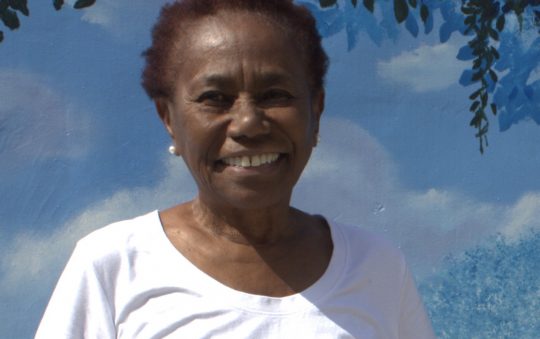I am among the tens of millions who had to be peeled away from their television set on Friday, November 13 and in the days after ISIS terrorists randomly massacred at least 130 people and wounded hundreds more in Paris. Then, there was the nearly 30 people executed at a hotel in Bamako, Mali. And there were the several threats against New York City, and the presidential and police responses to those threats. This terrorism has caused fear and insecurity in France, Belgium and the United States.
Terrorism is defined as the use of criminal acts to inspire human fear. ISIS engages in their criminal acts to create a sense of instability in parts of the Western world. Days after the massacre, those who planned and participated in the carnage were found, and some were killed (or blew themselves us). Catching these few terrorists will not stop.
Some political pundits that appeared on news programs urged the United States and others to consider the “root causes” of ISIS, while others think that actions in the West are to blame (consider the Charlie Hebdo attack and those who blamed a magazine cover for the assassination of journalists). I’m not sure that this is the most appropriate or compassionate response so quickly after the terrorist attacks. Still, these are questions that must eventually be answered. What should our response be? Is this war? Are we prepared to endure another Vietnam, committing U.S. lives to a ground war that is perhaps unwinnable?
We can expect more security and scrutiny, and appropriately so. It is also unfortunately likely, however, that some of the scrutiny will have an element of profiling (especially racial profiling) involved, since many (perhaps most) of the ISIS terrorists are young, male, and Muslim But despite Donald Trump’s jingoistic insanity, do we want to stop everyone who “looks” like a Muslim. What does a Muslim look like? What does a terrorist look like?
Just a few days before the Paris massacre, the news was dominated by Black student protests around country, at the University of Missouri at Columbia, and at Ithaca College, Yale University, Smith College, Claremont McKenna College and the University of Kansas. Many of these protests were in solidarity with the Mizzou students and in solidarity with the #BlackLivesMatter movement. There is no comparison between what happened in Paris and what has happened on many campuses, it occurs to me that the “n—“ word bandied about is an act of terror that is designed to make African American students feel insecure and unsafe. This is why the students who ask for “safe space” should be encouraged, not ridiculed.
Strewing cotton balls on the lawn in front of the Black culture center on Mizzou Campus is an act of terror, designed to exploit feelings of insecurity. It is neither a trivial act, nor a prank, but an act of hate. It is especially hateful when the perpetrators are fairly certain that they will not be caught and that there are few consequences for their actions. In the domestic context, anonymous terrorism is especially unsettling because one rarely understands exactly who the terrorists are. Anonymous terrorism reminds me of the KKK, the criminals who only felt safe when they hid behind hoods and sheets.
Campus racism has long-term consequences for young African Americans. Some will learn how to protest and carry the spirit of protest with them for the rest of their lives. Others, unfortunately, will learn to “go along to get along”, internalizing the lessons of intimidation. They are the young people who dismiss racism as “no big thing”. But it was a big thing when White Tulsans burned down Black Wall Street, and no one stood in solidarity. Lynching was a terrorist act, but Congress would not pass anti-lynching legislation. Those terrorist actions took place in the early 20th century, but later, Bull Connor was a terrorist. George Wallace was a terrorist. Comb our history and you’ll find any number of terrorists who perpetrated criminal acts against African Americans. Those who ignored those criminal acts create a climate where racial terrorism can occur.
The White thug who massacred nine people at Emanuel AME Church in South Carolina committed a heinous act of terrorism. The people of Emanuel fought back with a loving defiance. They wouldn’t stop going to church, they wouldn’t stoop to hate. Still, the slaughter of nine people had a national impact.
The people of the United States mourn with our brothers and sisters in Paris as they sort through the aftermath of death, wounding, and destruction. We stand in solidarity with them against the evil that ISIS represents. And we stand in solidarity with the domestic terrorism that pollutes the atmosphere at some of our nation’s college campuses, and in other public spaces. The University of Missouri President Timothy Wolfe who refused to address campus racism was sanctioning terrorism. I shudder about what happened in Paris, and I also shudder at those who find domestic racial terrorism acceptable. If carnage in France provokes war, what should racial terrorism in the United States provoke?
Julianne Malveaux is an author and economist based in Washington, DC. Her latest book “Are We Better Off? Race, Obama and Public Policy” will be released in 2015 and is available for preorder at www.juliannemalveaux.com.







